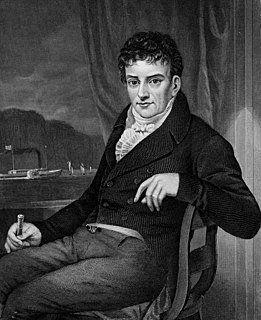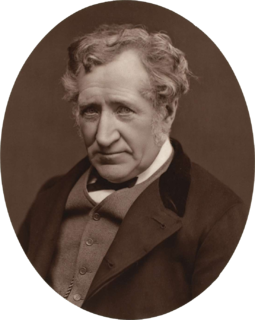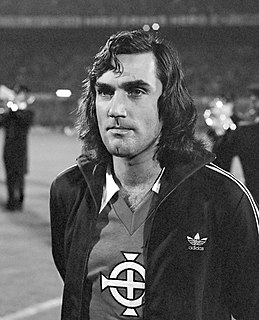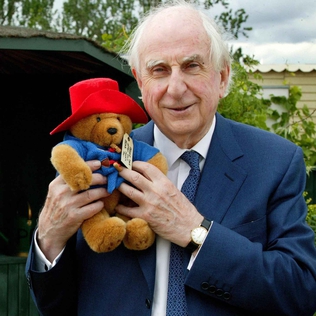A Quote by Robert Fulton
My steamboat voyage to Albany and back, has turned out rather more favorable than I had calculated. The distance from New York to Albany is one hundred and fifty miles; I ran it up in thirty-two hours, and down in thirty. I had a light breeze against me the whole way, both going and coming, and the voyage has been performed wholly by, the power of the steam engine. I overtook many sloops and schooners beating to windward and parted with them as if they had been at anchor. The power of propelling boats by steam is now fully proved.
Quote Topics
Related Quotes
To me the biggest waste of time is commuting. First, there is no place that is less than a two-hour commute from New York. You can be half a mile outside of the city limits; you're two hours away by car. I don't care how close they tell you it is. "Oh, it's only thirty miles." Thirty miles? At 8:30 in the morning, thirty miles outside New York, you might as well be starting out in Omaha.
You've probably heard about the theory of steam-engine time - that even after the steam engine had been invented, it had to wait until people were ready to make use of it. The same thing happens in literary circles. The truth is, I'm not terribly interested in Victorian times; I'm interested in Victorian writers. I'm interested in most eras of history, but not the Victorian Era especially. I was interested in the John Franklin Expedition. I was interested in these last five weird years of Dickens' life. And I just have to take the age that comes with all that when I write about it.
Everything is Flammable was the first full-length book I was able to finish. I started a couple others, but ran out of steam. This one had momentum, I never got bored or discouraged. It is made up of short pieces, which is where my comfort zone is. I'm more of a sprinter than a long-distance runner. When you do a short piece, you get in and get out; you don't linger.
I took my coffee into the dining room and settled down with the morning paper. A woman in New York had had twins in a taxi. A woman in Ohio had just had her seventeenth child. A twelve-year-old girl in Mexico had given birth to a thirteen-pound boy. The lead article on the woman's page was about how to adjust the older child to the new baby. I finally found an account of an axe murder on page seventeen, and held my coffee cup up to my face to see if the steam might revive me.




































